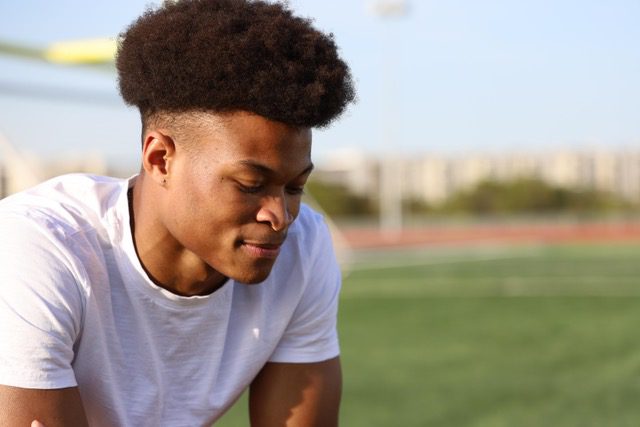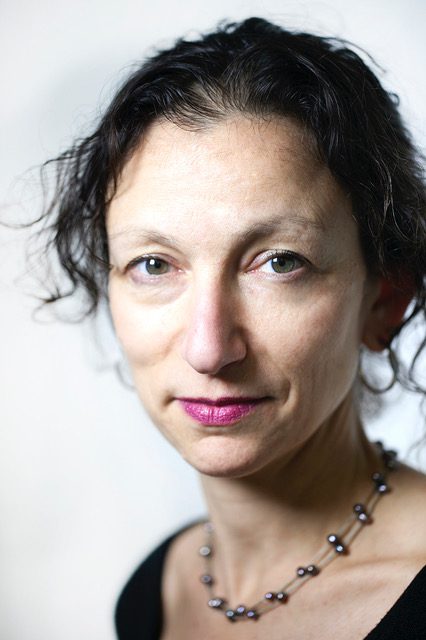
This post originally appeared from The Local Moms Network.
This year marks the 20th anniversary of September 11th. For many of us, that tragic morning felt like a line drawn in the sand. You remember what you were doing, where you were—and who you were—before it happened. Then, the world—and your view of it—changed forever. Now that we’re moms? The day, and anniversary, somehow seem to hold even greater significance. The children who lost parents in the attacks are no longer children, but young adults. A new documentary, Generation 9/11, features seven of the children who were born after their fathers died on September 11th, 2001. We spoke to filmmaker and mom Liz Mermin about this fascinating—and simultaneously sad and hopeful—project.
Where were you on 9/11 and why did you decide to undertake this project?
I was living in New York on 9/11, in a small apartment in the West Village with a perfect view of the twin towers out my tiny window, so I saw the whole thing unfold in real time and lived through the surreal aftermath. The three things I remember most from the days immediately after are the terrifying smell, the fact that strangers were being incredibly nice to each other (which wasn’t what NYC was like at that time) and that there was a tank parked outside my door. I spent much of the next year working on a first anniversary film for ABC, interviewing first responders about their experiences on the day. It was obviously a tough project to work on, so when Arrow Pictures got in touch to ask if I’d direct a 20th anniversary film I wasn’t all that enthusiastic. The idea was theirs, not mine, and what won me over was the challenge of telling two equally compelling stories: one personal—how does a child grieve someone they’ve never met, especially when that very personal loss is inseparable from a global tragedy—a part of history? And two, what’s it been like to grow up in the US through two decades that were shaped by American responses to the attacks? I liked the fact that it wasn’t about the day itself, it was about what the events of the day have done to young people.
And why did you choose to focus on children of expectant fathers—kids who never met their dads?
That decision was made before I came onboard but as I said, this idea of mourning an absence, of having something huge that you never experienced being a determining factor throughout your life, in the way it influence your family and your world, is worth exploring—because in a way it’s a metaphor for the way we all live life. We’re all shaped by events that happened before our times and people we will never know. But to have it so raw and personal is obviously something different, and hearing how these young people had coped with that had to be powerful. Also, this is the first set of 21st century natives. They were born into the post-9/11 world with all that entails; they’ve been shaped by a world that has been shaped by the attacks and America’s response.
You also featured the families, including moms—of these children. What did you hear most often from the moms, in terms of how they found the strength to carry on?
The mothers were amazing—the way they kept it together to raise their kids when their world had been blown to pieces, and hearing them talk about the day itself, you realize just how fresh and raw it still is. But there were two things I heard from most of them. Most said that being pregnant and having a new born baby to focus on was a huge help, because it meant they couldn’t dwell on their emotions or get lost in grief—they had to take care of themselves and keep going for the baby. The other was that they had always said that they were open to talking to their kids about what happened that day, but their kids never asked.
How interesting—was there anything that surprised you while making the film?
For me the most emotionally moving moments were when we saw that, because of the film, the kids and their mothers were having the conversation that they hadn’t been able to have. The mothers said they’d made it clear that they were open to talking about it but that their kids never asked; but the kids said that they didn’t even know what to ask, and that they felt like it was their mother’s story more than theirs and they didn’t want to push or pry. We went down to the 9/11 memorial in New York with Nick and his mother Paula. Paula’s office was in the World Trade Center but she had morning sickness that day and so was late. She arrived just as the plane struck. What she didn’t know was that her husband, who worked in midtown, had volunteered to replace a colleague at a meeting at the World Trade Center, and he was in there when the towers collapsed. Hearing her tell that story was chilling, but the most emotional moment was when she explained to Nick that she was worried that the stress she was feeling in the aftermath would affect him during her pregnancy, that she would be passing it all on to him. He listens quietly and then reaches out in an awkward teen way to give his mother a reassuring hug, and wish her a happy mother’s day. It’s a breath-taking moment; it was very generous of them to share it with us—and it really captures what it means for these kids to be coming of age, growing up.
That children also came of age during the rise of social media, Iraq, Afghanistan and now the pandemic. Where do these kids find their center and was each experience unique?
Yes, we explore a lot of those things in the film. We had explored many more of them but even at two hours you have to leave some scenes on the cutting room floor! The wars abroad were pretty distant to most of these kids—even Luke, who is joining the military. But social media, and the sense of anger and hatred and division you find on it, is something they all talked about. I was really impressed by how grounded they all were despite this, and I tend to think that some of that comes from having grown up surrounded by people who were getting on with life despite a terrible loss and terrible pain.
All seven of them were very calm and thoughtful in their views. All of them felt that the voices that dominate the social and non-social media worlds are extremists and not to be trusted, and all of them stressed the importance of research and learning, which was heartening. I definitely think each coping mechanism was unique, and they all have different views of the world, but I also think they all share an appreciation that anything can happen at any time and you need to make the most of life. I think Nick says in the film…the tiniest thing can change your life forever.
How did your own kids influence you in this project?
My son is ten years younger than these kids, so it’s not like I saw my son in them, but it did give me a visceral empathy for the mothers that I might not have had in the same way had I made the film before he was born. We all know (at least, many of us do) the terror that accompanies pregnancy and those early years, that feeling that everything you’re doing is potentially screwing your kid up forever. I think seeing how strong and thoughtful and independent these kids were was really reassuring: kids are resilient, they just need love and support, they will have fears and anxieties and all sorts of problems but they make their way through. Also, having a sense of what life is like for young children helped me come up with questions to draw out their early memories – an area they all claimed was a blank page, but with a bit of gentle prodding plenty of details emerged.
What is next for you?
I am going to continue making films for as long as people will let me! I’ve had to change the way I do it since having a kid. I can’t disappear to Afghanistan or India for 3 months at a time, but there are so many great stories to be told and I hope to keep doing them.
Anything else you’d like to share?
Two things: Fares’ story is clearly an exception but it is so important: he was born before the attacks, but his mother was with the boys in Yemen, while his father (an American of Yemeni descent) was working in New York and trying to get her a visa. He would have grown up as an American kid in Brooklyn, but instead he grew up in Yemen—talk about life chaining in an instant! They were happy enough in Yemen until the civil war. Fares lived through three years of war before he and his mother were able to resettle in the US. He and his brother are such smart, talented young men but starting life over in a new country, in English, is an enormous challenge for anyone. How it must feel to know how different everything could have been, I can’t imagine. They had never spoken publicly about their loss, and as recent immigrants their life is challenging enough already—it took a lot of courage for Fares to take part.
And finally I think it’s just important to acknowledge how brave it was for all these families to take part in the film, particularly for the kids to be so candid about their take on the world. Twenty years ago if you appeared in a documentary maybe someone would talk to you about it on the street or there might be a nasty review in a newspaper, but now you have the potential to be attacked on social media, and the films live forever online. To share such deeply personal and emotional thoughts with the world is a testament to their love of their fathers, because they all did it as a way of reminding the world that we shouldn’t forget the individual stories behind the headlines.


